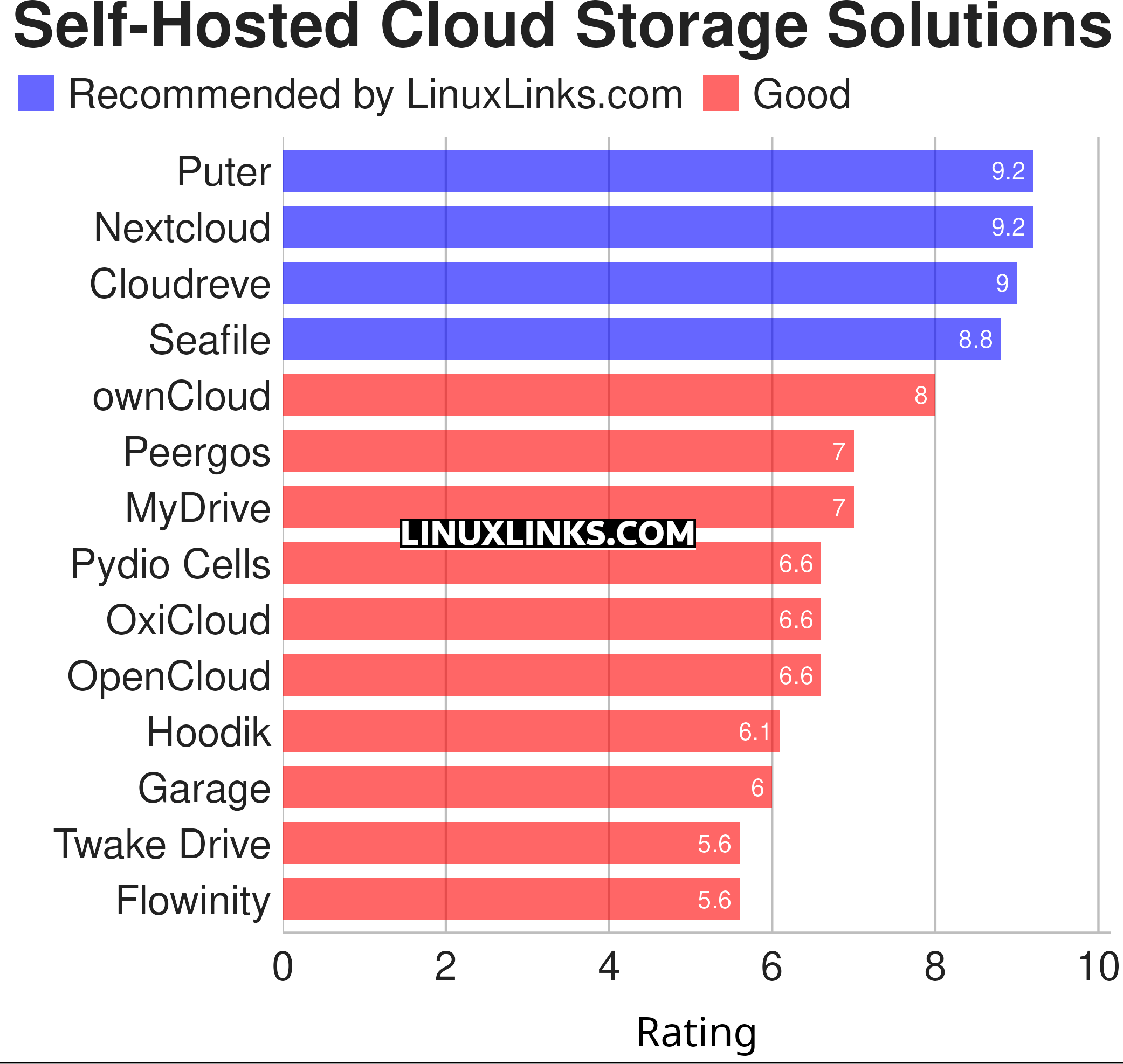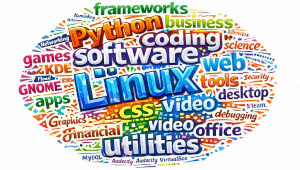Cloud computing is not a new technology. It was invented by J.C.R Licklider, an American psychologist and computer scientist, for ARPANET in the 1960’s. The first commercial versions saw the light of day in 1983 by CompuServe. Today there are many cloud providers available.
Cloud storage is often used for the following purposes:
- Sync your files across all of your devices automatically.
- Share files with other people.
- Create a backup for your own personal data.
- Protect your work from accidental destruction.
- Extend the storage on devices with limited storage.
By using an online cloud storage service, your data is not under your control. There are lots of potential security issues too particularly if you have sensitive data. A good solution may be to self-hosted your storage. There are lots of open source solutions available. Here’s our pick.
Our verdict is captured in a legendary LinuxLinks-style ratings chart. Only free and open source software is eligible for inclusion here.

Click the links in the table below to learn more about each tool.
| Self-Hosted Cloud Storage Tools | |
|---|---|
| Puter | Privacy-first personal cloud |
| Nextcloud | Personal cloud storage, text editor, photo gallery, file share, calendaring app |
| Cloudreve | Self-hosted file management system with multi-cloud support |
| Seafile | Cloud storage system with privacy protection and teamwork features |
| ownCloud | Content collaboration, file-sharing, and file-syncing |
| Peergos | Secure file storage, social network and application protocol |
| MyDrive | Cloud file storage server |
| Pydio Cells | File sharing platform for organizations |
| OxiCloud | Lightweight, Rust-powered alternative to NextCloud |
| OpenCloud | File sharing and collaboration solution |
| Hoodik | Cloud storage solution |
| Garage | S3-compatible distributed object storage service |
| Twake Drive | Alternative to Google Drive |
| Flowinity | Image uploader and file storage solution |
 Read our complete collection of recommended free and open source software. Our curated compilation covers all categories of software. Read our complete collection of recommended free and open source software. Our curated compilation covers all categories of software. Spotted a useful open source Linux program not covered on our site? Please let us know by completing this form. The software collection forms part of our series of informative articles for Linux enthusiasts. There are hundreds of in-depth reviews, open source alternatives to proprietary software from large corporations like Google, Microsoft, Apple, Adobe, IBM, Cisco, Oracle, and Autodesk. There are also fun things to try, hardware, free programming books and tutorials, and much more. |

